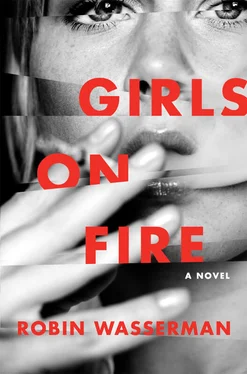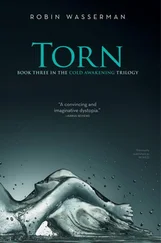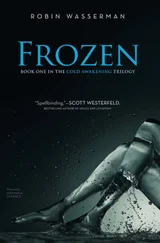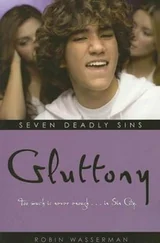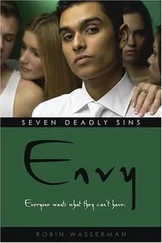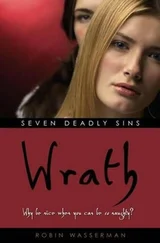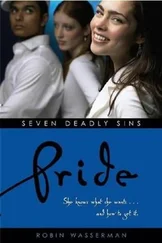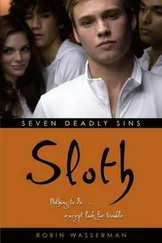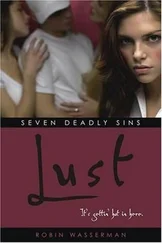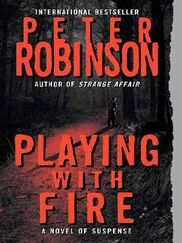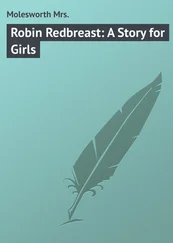Robin Wasserman - Girls on Fire
Здесь есть возможность читать онлайн «Robin Wasserman - Girls on Fire» весь текст электронной книги совершенно бесплатно (целиком полную версию без сокращений). В некоторых случаях можно слушать аудио, скачать через торрент в формате fb2 и присутствует краткое содержание. Год выпуска: 2016, Издательство: Harper, Жанр: Современная проза, на английском языке. Описание произведения, (предисловие) а так же отзывы посетителей доступны на портале библиотеки ЛибКат.
- Название:Girls on Fire
- Автор:
- Издательство:Harper
- Жанр:
- Год:2016
- ISBN:нет данных
- Рейтинг книги:5 / 5. Голосов: 1
-
Избранное:Добавить в избранное
- Отзывы:
-
Ваша оценка:
- 100
- 1
- 2
- 3
- 4
- 5
Girls on Fire: краткое содержание, описание и аннотация
Предлагаем к чтению аннотацию, описание, краткое содержание или предисловие (зависит от того, что написал сам автор книги «Girls on Fire»). Если вы не нашли необходимую информацию о книге — напишите в комментариях, мы постараемся отыскать её.
Girls on Fire — читать онлайн бесплатно полную книгу (весь текст) целиком
Ниже представлен текст книги, разбитый по страницам. Система сохранения места последней прочитанной страницы, позволяет с удобством читать онлайн бесплатно книгу «Girls on Fire», без необходимости каждый раз заново искать на чём Вы остановились. Поставьте закладку, и сможете в любой момент перейти на страницу, на которой закончили чтение.
Интервал:
Закладка:
Out there, in the unimaginable world beyond Battle Creek, the army of reason marched on. We knew it was true, because we saw it on TV. Up with the separation of church and state; down with supply-side economics. Up with sex and drugs and the saxophonic approximation of rock and roll; down with the death penalty and “gay cancer” and Dan “Potatoe” Quayle. Our Democrat took the White House, a hippie boomer with his finger on the button. We were all living in Satan’s America now, at least according to Pat Buchanan. We’d always liked Clinton, the man with the honeyed voice and the McDonald’s jowls who worshipped at the altar of indulgence. He was our kind, we thought once, but not anymore, because he still believed in a place called hope.
WE WENT TO THE FUNERAL, obviously. People stared. Nikki killed herself — everyone believed that — but she’d done it on Halloween, the devil’s night; she’d done it in a boxcar scribbled with satanic symbols; she’d done in it the same season one of her fellow seniors had turned satanist and cursed half the class. The devil’s fingerprints were all over. Only Nikki’s parents and brother didn’t stare. They sat in the front row with their heads down. Her father cried. We wanted to, but we didn’t.
MAYBE, DEEP DOWN, WE LIKED it. They were afraid of us, and there was always pleasure in that.
We saw that they liked it, too. You could hear it in the curbside sermons, the barely concealed pride of being proven right. If Battle Creek did have an underground cabal, it was a cabal of shameful joy, and these were its members: the ministers, the principal, the guy who kept writing all those editorials in the local paper, the cops, the experts brought in from Harrisburg to advise on cults, everyone who got to be on TV. We heard that after Geraldo came to town, Kaitlyn Dyer’s mother had a viewing party, with seven-layer dip, like it was the Fourth of July. We weren’t invited.
WE SHARED A BEDROOM, MARKING time till graduation, until we could leave without drawing suspicion. All of our parents had been accommodating; in the days after Nikki, no one liked the idea of a girl living on the streets. We slept side by side. We smelled of the same conditioner and toothpaste; we wore each other’s clothes. We couldn’t stand the sight of each other, but we had to stay in sight. We had to make sure our secrets would stay locked up, which meant watching each other, always. We dreamed with our eyes open, remembering the noise she’d made as the blood was spilling out of her, the whale song of pain.
We still drove, in those endless days. Never toward something. Always away. We would drive into emptiness, then set out a blanket, lie down in the middle of a dead sunflower field. A yellowing void we could scan from horizon to horizon, wizened stalks swaying in the breeze.
The buzz and chitter of insects. Our goose-bumped skin. Spring on its way, all too slowly. Seconds ticking by, measured and loud. Life inside a grandfather clock.
We talked about the devil, and whether there was such a thing. Once we had speculated that God and the devil were the same, that they were contained in the holy sound of Kurt’s voice, but we didn’t need them anymore, our god or our devil. We understood now what we were meant to be, a church of two, worshipping only each other.
WHEN THE TIME WAS RIGHT, we left. Exactly as we’d planned, in the dark of night, bags piled into the trunk, car pointed west. We didn’t go to Seattle. Seattle wasn’t ours anymore. But we paid attention, and we saw what became of it.
Seattle was a commercial. Seattle was a movie set and a Gap ad. Grunge was ascendant; the revolution was televised. Seattle took over the world, all its possibility and promise made manifest, and didn’t survive it.
Neither did Kurt. We didn’t cry. We wondered, for a moment, at the rumors about Courtney, because we knew how easy it was to make one thing look like another, to take a cold hand and curl it around a gun. But deep down, we knew: It was Kurt. His finger. His trigger. He owned his death, and it turned out the death of a god was like any other. It was not rage or sorrow or love; it was neither beautiful nor deep. It was the one thing Kurt had never been: pointless noise, pointless silence.
THERE WAS NO PLACE TO go but LA, where you could live on the surface and get lost beneath it, all at once. We found an apartment in the shadow of a freeway and jobs that made our feet hurt and our hair smell of smoke; we paid rent and taught ourselves to surf, trying to pretend we were having fun.
This is what we wanted, we told ourselves, and also, we will be okay, and also, I still love you.
We liked how we looked with platinum hair, and even more we liked how we looked like everyone else. Sometimes we even liked how much we looked like each other, like sisters, people said for the first time. LA was a place to lose yourself and be reborn. It was as far as we could get from Battle Creek without drowning ourselves in the Pacific, and we waited, we wait, for the tide to carry Nikki into the past.
LA doesn’t believe in the past any more than it believes in the future, and so neither do we. We pretend away the days to come, when our skin will loosen, our breasts will sag, our eyes will be rimmed by lines and hollows that makeup can’t disguise, when we will no longer be girls who’ve done something terrible but women atoning for the sins of the strangers they used to be. We will never go back; we will search for ourselves on milk cartons and miss the home we were so desperate to escape. We will be waitresses and receptionists and the chirpy voice on the end of the line thanking you for your time and telling you have a nice day . We will worship the girls we used to be. We will never have children; we will never have daughters. Someday, maybe, one of us will walk into the sea, and the other will finally be alone.
Not yet. We refuse the future. We hang onto our moment, freeze ourselves in this time, when we are still girls, when we still know pain and its pleasures. We walk in the ocean and dig our toes into sand that comes from far away, from ages past. We scan the horizon for pirate ships and glass bottles, for unlikely miracles washing to shore. We have no secrets from each other; we are two parts of a whole. We have everything we wanted; we have only each other, and we can only trust the girls we used to be, who whisper to us from the past and promise that will be enough.
Acknowledgments
THANKS TO THE DREAM TEAM: Meredith Kaffel Simonoff understood what this story wanted to be and somehow bamboozled me into believing I could write it. Cal Morgan’s wisdom, insight, persistence, and refusal to let a single semi-colon pass without careful consideration and occasional debate made the revision process a terrifying joy. There’s not enough gourmet chocolate in the world to repay my debt to either of them, but I’m working on it. I also owe a substantial amount of chocolate — and maybe some tea scones — to Clare Smith, for her transatlantic encouragement, support, and razor-sharp editorial insight.
Thanks also to Jennifer Barth for the extroardinary enthusiasm with which she guided this book into the world, and to the wonderful Jonathan Burnham, Robin Bilardello, Stephanie Cooper, Lydia Weaver, Katherine Beitner, Laura Brown, Erin Wicks, and everyone at HarperCollins; to the indefatigable Poppy Stimpson, Rachel Wilkie, and everyone at Little Brown UK; and to all the amazing cheerleaders at DeFiore and Company, especially Colin Farstad.
Leigh Bardugo, Holly Black, Sarah Rees Brennan, Erin Downing, Barry Goldblatt, Erin Downing, Jo Knowles, E. Lockhart, Ilana Manaster, Mark Sundeen, and Adam Wilson all took the time and effort to read stacks of pages, helping me figure out which ones not to light on fire. They, and so many others, kept me afloat while I was kicking and flailing my way through this book: Dan Dine, Brendan Duffy, Leslie Jamison, Anica Rissi, Lynn Weingarten — thank you, a million times over, for keeping me well stocked in ideas, motivation, ambition, love, hope, and baked goods.
Читать дальшеИнтервал:
Закладка:
Похожие книги на «Girls on Fire»
Представляем Вашему вниманию похожие книги на «Girls on Fire» списком для выбора. Мы отобрали схожую по названию и смыслу литературу в надежде предоставить читателям больше вариантов отыскать новые, интересные, ещё непрочитанные произведения.
Обсуждение, отзывы о книге «Girls on Fire» и просто собственные мнения читателей. Оставьте ваши комментарии, напишите, что Вы думаете о произведении, его смысле или главных героях. Укажите что конкретно понравилось, а что нет, и почему Вы так считаете.
